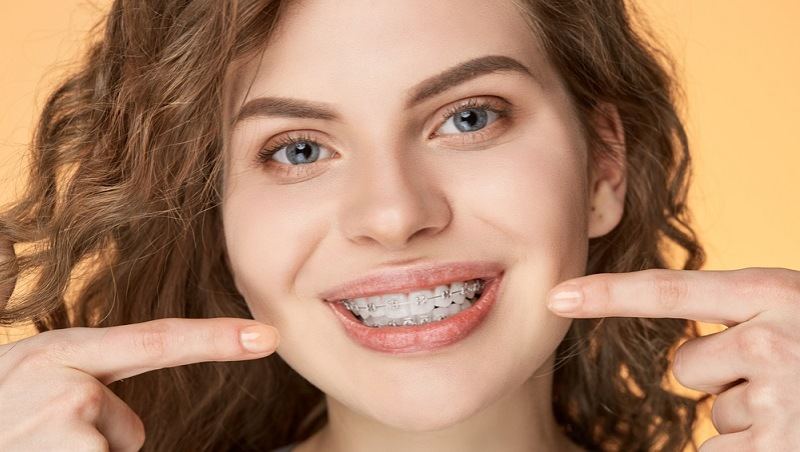Orthodontic treatment with braces is a common solution for correcting misaligned teeth and improving oral health and aesthetics. However, not everyone is an ideal candidate for braces due to various factors that may affect the success and safety of treatment. Understanding these factors is crucial for both patients and dental professionals in making informed decisions about orthodontic care. This article explores the key considerations that may deem someone a less suitable candidate for braces, providing insights into when alternative treatments or additional preparations may be necessary.
What Factors Make You A Bad Candidate for Braces?
1. Oral Health Issues
One of the primary considerations when evaluating candidacy for braces is the current state of oral health. Certain oral health issues may pose challenges or risks during orthodontic treatment with braces:
Severe Gum Disease (Periodontitis): Advanced gum disease can compromise the stability of teeth and their supporting structures. Braces may exacerbate gum inflammation and lead to further periodontal damage if not managed properly.
Untreated Tooth Decay: Teeth affected by untreated cavities may require dental restorations before braces can be applied.
Decay can weaken teeth and increase the risk of complications during orthodontic treatment.
Presence of Dental Abscesses: An abscessed tooth indicates an infection that may need to be treated before braces can be considered. Infections can spread and cause serious complications if not addressed promptly.
Poor Oral Hygiene: Maintaining good oral hygiene is crucial during orthodontic treatment to prevent tooth decay, gum disease, and other oral health problems. Individuals with consistently poor oral hygiene habits may not be suitable candidates for braces until they demonstrate improved hygiene practices.
SEE ALSO: What Does Orthodontic Treatment Involve?
2. Jaw Development and Skeletal Issues
Orthodontic treatment not only addresses tooth alignment but also considers the relationship between the jaws and facial structure. Certain skeletal and jaw development issues may affect candidacy for braces:
Severe Jaw Misalignment (Malocclusion): Cases where the upper and lower jaws significantly misalign may require surgical intervention (orthognathic surgery) in addition to braces for optimal results. Orthodontic treatment alone may not effectively address severe malocclusion.
Unfavorable Jaw Growth Patterns: Abnormal growth patterns of the jaws, such as underdeveloped or overdeveloped jaws, may impact the feasibility and success of orthodontic treatment with braces. In some cases, orthodontic appliances or surgical intervention may be necessary to correct skeletal discrepancies.
Temporomandibular Joint (TMJ) Disorders: Individuals with TMJ disorders characterized by jaw pain, clicking, or dysfunction may require specialized evaluation and treatment before orthodontic treatment with braces can proceed safely.
3. Age and Developmental Considerations
Age and developmental factors play a significant role in determining candidacy for braces and the timing of orthodontic treatment:
Young Children: While early orthodontic intervention (interceptive orthodontics) may be beneficial for certain developmental issues, placing braces on primary (baby) teeth is typically not recommended. The focus is often on guiding jaw growth and creating space for permanent teeth.
Adults: Adults seeking orthodontic treatment with braces may face additional considerations such as bone density, gum health, and the presence of dental restorations (e.g., crowns, bridges). Orthodontic treatment plans for adults may need to address these factors to achieve optimal outcomes.
Bone Maturity: The stage of skeletal and dental development influences the feasibility and duration of orthodontic treatment with braces. In some cases, orthodontic treatment may be postponed until skeletal growth is complete to ensure stable and lasting results.
4. Lifestyle and Compliance
Successful orthodontic treatment with braces requires a commitment to oral hygiene and compliance with treatment protocols. Factors related to lifestyle and patient compliance may impact candidacy for braces:
Difficulty Maintaining Oral Hygiene: Braces require extra effort to keep teeth and gums clean. Individuals with challenges in maintaining adequate oral hygiene may be at higher risk of tooth decay, gum disease, and other complications during orthodontic treatment.
Tobacco Use: Smoking and tobacco use can contribute to gum disease, delayed healing, and increased risk of oral health problems. Orthodontic treatment may be less successful in individuals who continue to smoke or use tobacco products.
Dietary Habits: Certain dietary habits, such as consuming hard or sticky foods, can increase the risk of damaging braces or causing orthodontic emergencies. Patients may need to modify their diet and avoid certain foods to protect their braces and optimize treatment outcomes.
5. Psychological and Expectation Factors
Orthodontic treatment with braces requires patience, commitment, and realistic expectations from the patient:
Psychological Readiness: Some individuals may experience anxiety or apprehension about undergoing orthodontic treatment with braces.
Open communication with the orthodontist and addressing concerns can help ensure a positive treatment experience.
Expectations: Understanding the goals, limitations, and potential outcomes of orthodontic treatment is essential.
Unrealistic expectations about the speed or extent of results may affect patient satisfaction and compliance with treatment recommendations.
Conclusion
Determining candidacy for braces involves a comprehensive evaluation of oral health, skeletal development, age considerations, lifestyle factors, and patient expectations. While braces are a highly effective treatment for correcting misaligned teeth and improving oral health, certain factors may influence whether an individual is a suitable candidate for treatment at a given time. Consulting with a qualified orthodontist allows for personalized assessment and the development of a treatment plan tailored to address individual needs and achieve optimal outcomes.

